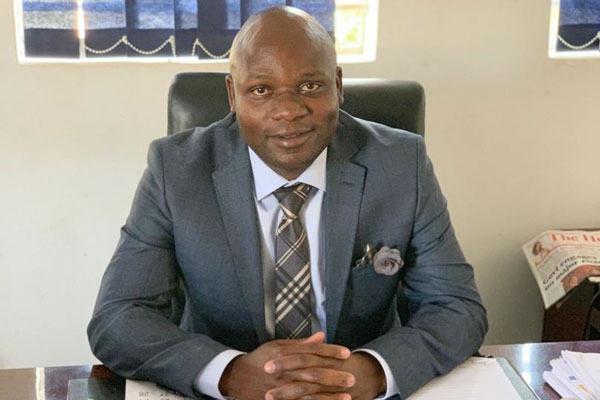
business reporter
Solution Motors has been under the spotlight lately after a report tabled in Parliament by the Auditor-General Mildred Chiri revealed that the company failed to deliver vehicles ordered by the government as far back as 2017 despite the fact that it had received payment in advance.
The company, which has been in business for 14 years procuring motor vehicles, and earth-moving machines, says it has been helping Zimbabwe to circumvent restrictions by the United States’ Office of Foreign Assets Control (OFAC).
OFAC places restrictions on Zimbabwean companies seeking to do business with United States entities. Solutions Motors MD Patrick Siyamwaya (PS) told our correspondent Thomas Mupfuka (TM) that the company had done well to help the country navigate the US sanctions.
Below are excerpts from the interview.
TM: Can you please explain what you do as a company?
PS: Thank you so much, we are an automotive company. Basically we supply new plant and equipment, do vehicle sales and we also have a fully-fledged vehicle fitment centre, which also offers after-sales support to our clients.
We designed our business to supply government agencies, local authorities and private companies and with vehicles and earth-moving equipment, when we discovered that these companies could not make offshore payments due to OFAC.
- Chamisa under fire over US$120K donation
- Mavhunga puts DeMbare into Chibuku quarterfinals
- Pension funds bet on Cabora Bassa oilfields
- Councils defy govt fire tender directive
Keep Reading
TM: Since you have designed your business to bridge that gap between government and the rest of the world can you please share with us how you manage to process offshore payments to manufacturers without being detected?
PS: Paying for large goods that will be coming into the country is a difficult thing. OFAC is real.
One thing we have done as a company was to establish relationships with regional banks in Zambia, South Africa and Botswana, who make payments on our behalf.
Actually, when we are making these payments to our suppliers we sometimes don’t disclose the owner of the goods, because we have on several times experienced challenges when we reveal that the goods being purchased belong to government.
TM: The latest Auditor-General’s report revealed that there was a government tender, which you were awarded in 2017, and to date you haven’t fulfilled it. Can you please share with us more details on why you haven’t honoured the contract?
PS: In December that year we responded to two separate tender invitations from the Department of Irrigation, which falls under the Ministry of Agriculture to supply five single cab Nissan NP300 motor vehicles and five Toyota Hilux double cabs.
The other tender was to provide a single SLG roller, two excavators, two tipper trucks, and a water bowser.
In November, we received a letter of award to supply the goods.
In December we received $560 850 for the motor vehicles whilst in January a payment of $730 104 for plant and equipment was made.
However, due to challenges in accessing forex we failed to deliver the part of the goods on time, after we had delivered a bigger part of the contract.
During that period, our currency was still denominated as United States dollars, but when government made the payments they deposited real time gross settlement (RTGS) dollars.
We approached our bank POSB, and the Reserve Bank of Zimbabwe to assist us in accessing forex to pay our suppliers in Europe and China to no avail.
We hope to finish delivery of the remaining four vehicles and an excavator in the first quarter of next year, as our deposit payment is still sitting in our suppliers accounts.
TM: Is this the only contract that you failed to honour?
PS: Yes, because this was a huge contract for us. As we were dealing with suppliers from outside the continent, and their approach towards Zimbabwe varied.
In previous contracts we got our products from Bilson Truck in South Africa and also Mark White Nissan SA.
We have worked well with Bindura RDC, Murewa RDC and Mutoko RDC and other government departments.
But the challenge is when purchasing machinery outside the continent.
TM: How have you been affected by recent policies restricting the use of foreign currency within Zimbabwe as a business that has to import a lot?
PS: We have had cases where we ask for a price variation when the goods are in our premises, since the introduction of the local currency and the interbank market has not been able to fully cater for the market.
We now depend on our associates, who are outside the country to assist.
In short, business has been hit hard by these pronouncements.











